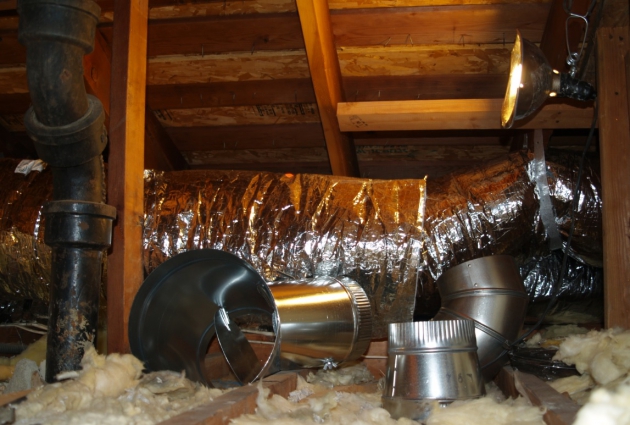Underpricing vs. Overpricing: What Works Best?

When you’re ready to sell your home, one of the most crucial decisions you’ll make is determining the right price. Whether you’re in a hurry or just trying to get the most out of your property, the way you price your home can have a significant impact on how quickly it sells—and how much you walk away with. Underpricing and overpricing are two strategies sellers often consider, but which one works best in today’s market? Let’s dive into these approaches and explore how they affect motivated sellers like yourself.
Pricing Strategy: Finding the Sweet Spot
As a motivated seller, one of the first steps you need to consider is your pricing strategy. The goal is to price your home accurately, reflecting its true value while also making it attractive to buyers. Pricing too high could lead to your home sitting on the market for months, which may result in price reductions. Pricing too low, on the other hand, could leave money on the table, ultimately lowering your potential return.
Market Conditions Play a Big Role
The current real estate market plays a critical role in how you price your property. Market conditions, such as whether it’s a seller’s or buyer’s market, can significantly influence your pricing decision. In a seller’s market, where demand outpaces supply, competitive pricing can attract buyers quickly, and you might even receive multiple offers. In contrast, in a buyer’s market, where supply exceeds demand, you might want to consider underpricing to stand out and capture attention.
Knowing the market analysis is essential in setting the right price. Understanding buyer preferences and current trends will help you price your home strategically. If you’re uncertain about market conditions, it’s a good idea to consult a professional who can help assess your property value in the context of the current market.
The Risk of Overpricing: What You Need to Know
When you overprice your property, it can be tempting to aim high in hopes of making a profit. After all, who wouldn’t want to get the best possible price for their home? However, pricing your home too high can be risky, especially in a market with more inventory or less demand.
Potential buyers often skip over homes that are priced too high, assuming that the seller is either unrealistic or unwilling to negotiate. Overpricing can also result in your property sitting on the market for a longer period. As time passes, your listing may start to lose its appeal, and you may end up reducing the price to attract buyers. This can give the impression that there’s something wrong with your home, even if that’s not the case.
In a competitive market, financial considerations like carrying costs and mortgage payments can add pressure. The longer your home stays unsold, the more you’ll have to pay in maintenance, taxes, and utilities. As a motivated seller, these additional costs can quickly erode the potential profit you might have hoped for.
Underpricing: A Strategy to Get Quick Offers
On the flip side, underpricing your home can create a sense of urgency among buyers. By listing your property for less than its market value, you might attract more interest, leading to multiple offers. This could push the price back up to or even beyond the asking price, especially if you’ve priced it attractively compared to similar homes in your area. For motivated sellers looking for a quick sale, underpricing might be the perfect option.
That being said, underpricing your home also has its risks. While it might bring in offers faster, you could potentially leave money on the table if buyers recognize the deal as a steal. It’s important to strike the right balance between competitive pricing and leaving enough room to meet your financial goals.
Selling Strategy: Weighing the Pros and Cons
Each pricing strategy—underpricing and overpricing—comes with its own set of advantages and drawbacks. The best approach depends on your specific selling strategy, your property value, and how quickly you need to close the sale. Understanding market conditions is key in helping you decide whether underpricing or overpricing will work best for your situation.
If you need to sell your house fast, underpricing may be the way to go. It can create a sense of urgency, bring in more buyers, and potentially spark a bidding war. However, if you’re not in a rush and want to hold out for the highest offer, overpricing might seem like an appealing choice—but be aware of the risks.
The Importance of Pricing Your Home Accurately
When deciding on a listing price, it’s important to be realistic about your home value. Buyers are knowledgeable and will conduct their own research, so if your home is priced too high or too low compared to similar properties in the area, it might raise red flags. Accurate pricing is the key to attracting the right buyers, minimizing the time your property stays on the market, and ensuring that you get the most for your home.
A market analysis can be extremely helpful in determining the best price for your home. Understanding recent sales in your area and the current demand can help you find the right price range. Whether you choose to underprice or overprice, ensuring that your price aligns with current market conditions will increase the likelihood of a successful sale.
Common Questions About Underpricing vs. Overpricing
- What happens if I price my home too high?
Pricing your home too high could result in your property sitting on the market longer, leading to price reductions and potentially scaring off buyers. - Is underpricing always a good strategy?
Underpricing can generate quick interest and multiple offers, but you might risk leaving money on the table. It’s important to weigh the benefits against the potential downsides. - How do I know the right price for my home?
Conducting a market analysis or working with a professional can help you understand your property value and determine a fair price based on market conditions. - Can I always change the price of my home once it’s listed?
Yes, you can adjust the price at any time. However, changing the price too often can signal to buyers that there’s something wrong with your home. - How do I balance pricing to attract buyers while still getting a good price?
Understanding buyer preferences and pricing competitively according to market conditions can help you strike a balance between attracting interest and achieving your financial goals.
Ready to Sell Your House Fast?
Selling a home doesn’t have to be complicated. If you’re a motivated seller looking for a hassle-free process, pricing your home correctly is essential to ensuring a quick sale. Whether you’re thinking about underpricing to spark buyer interest or weighing the risks of overpricing, knowing the current market conditions and doing a thorough market analysis will guide your decision.
At Middlesex Home Buyers, we offer a straightforward approach for motivated sellers. Our buying process is designed to be fast and transparent, allowing you to sell your house quickly and for a fair price. Reach out to us today to sell your house for cash and avoid the headaches of traditional listings!
Visit us today and get your free cash offer—a simple, stress-free way to sell your house in any condition!





